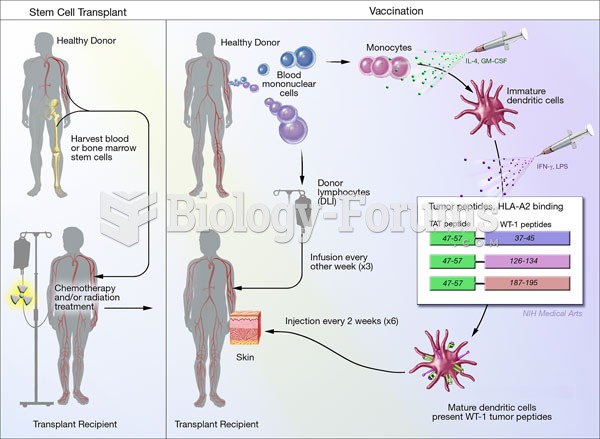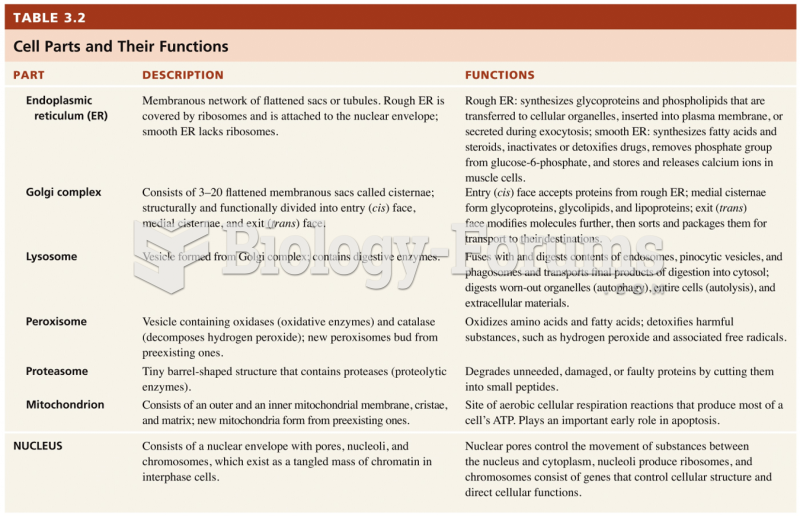|
|
|
Bacteria have flourished on the earth for over three billion years. They were the first life forms on the planet.
Russia has the highest death rate from cardiovascular disease followed by the Ukraine, Romania, Hungary, and Poland.
As many as 20% of Americans have been infected by the fungus known as Histoplasmosis. While most people are asymptomatic or only have slight symptoms, infection can progress to a rapid and potentially fatal superinfection.
Always store hazardous household chemicals in their original containers out of reach of children. These include bleach, paint, strippers and products containing turpentine, garden chemicals, oven cleaners, fondue fuels, nail polish, and nail polish remover.
Less than one of every three adults with high LDL cholesterol has the condition under control. Only 48.1% with the condition are being treated for it.
 Object and Word Recognition After Vertices Have Been Eliminated (Adapted from Szwed, M., Cohen, L, Q
Object and Word Recognition After Vertices Have Been Eliminated (Adapted from Szwed, M., Cohen, L, Q
 Lattice Parameter Relationships and Figures Showing Unit Cell Geometries for the Seven Crystal Syste
Lattice Parameter Relationships and Figures Showing Unit Cell Geometries for the Seven Crystal Syste





